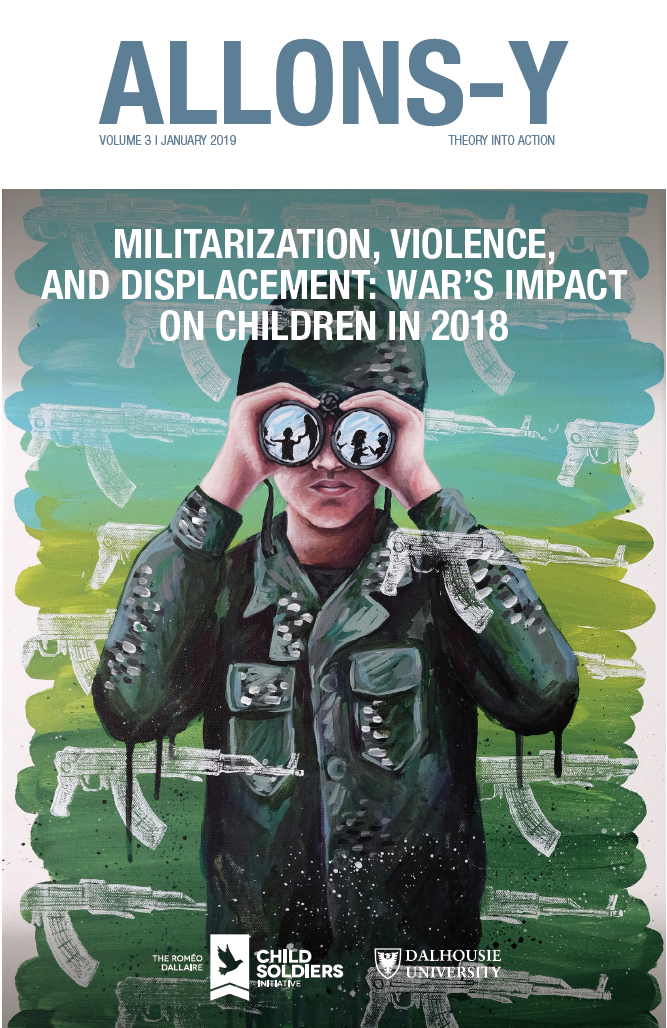Letter from the Editor
DOI:
https://doi.org/10.15273/allons-y.v3i0.10065Resumen
For this volume of Allons-y we asked young authors to write about how armed conflict impacts children in the countries on International Crisis Group‘s ten conflicts to watch in 2018 list. Much has changed in these conflicts since then, but all continue to do grave harm to children, which we struggle to address in the aftermath. The militarization and abuse of children are often used by autocratic regimes and armed groups to further their aims, and the trauma can have a lasting impact on the children and their societies. The four papers and their accompanying commentary in this volume illustrate these challenges and collectively highlight the importance of prevention.
The authors, all young scholars who are in or have recently completed graduate school, wrote about the ways in which children are ripped from their communities in order to be used for military and political ends in armed conflict, and the difficulties of repairing these harms afterwards, whether in countries affected by armed conflict like the Democratic Republic of the Congo (DRC) or when people flee as refugees to new lands. The first two papers explore how children are weaponized: Peter Steele writes about the North Korean Songbun system that militarizes children from birth, and Airianna Murdoch-Fyke writes about the systematic use of rape as a weapon of war targeted at girls in the DRC. Both methods are designed to disrupt a child‘s connection to their family and community. The last two papers explore the difficulties of addressing the resulting trauma: Arpita Mitra writes about the failures of the demobilization, disarmament, and reintegration process in the DRC, and Emily Pelley writes about the difficulties of aiding young refugees exposed to wartime violence when they come to Northern countries such as Canada. Collectively, these papers highlight the need to invest more in prevention of wartime abuses, rather than scrambling to catch-up and repair the damage already done.
While it may be cliché to say that young people are the future, it is also the truth, and it is important for them to have platforms to discuss and present their ideas and contribute to the most pressing challenges facing our world. Whether it is young politicians challenging our complacency on climate change, students fighting for safer schools, young activists towards peace in their countries and around the world, or young scholars such as the authors of this volume, we must turn to and support the younger generations who are invested in making a better world for themselves and all of humanity. In this spirit, Allons-y seeks to pair the academic and practical work of young people with the commentary of those who are more experienced in their field to demonstrate how young people can contribute to and create a brighter tomorrow.





